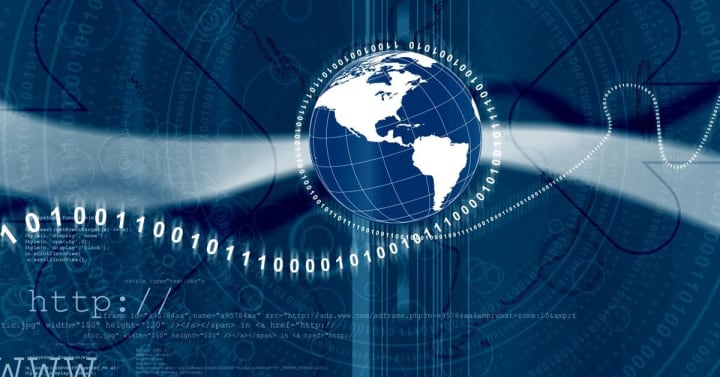Beyond Borders
Studying Global Politics, Diplomacy, and International Relations

In an increasingly interconnected world, understanding global politics, diplomacy, and international relations is essential for navigating the complex dynamics that shape our societies. From geopolitical conflicts to global cooperation, the study of these disciplines provides invaluable insights into the interactions and power dynamics between nations. In this article, we will explore the important parts of global politics, diplomacy, and international relations, highlighting their significance in today's globalized world.
1. Global Politics and Power
Global politics examines the distribution and exercise of power on a global scale. It explores the interactions between nation-states, international organizations, and non-state actors in shaping political, economic, and social outcomes. Key concepts in global politics include sovereignty, nationalism, geopolitics, and political ideologies. Understanding global politics allows us to analyze the complexities of power relations, conflicts, and cooperation in the international arena.

2. International Relations Theories
International relations theories provide frameworks for understanding and analyzing international relations. Realism, liberalism, constructivism, and other theoretical perspectives offer different lenses through which to interpret the motivations and actions of states and non-state actors. These theories explore factors such as security, economic interdependence, norms, and ideas, providing insights into the dynamics of international relations and the pursuit of national interests.

3. Diplomacy and Negotiation
Diplomacy plays a crucial role in international relations, serving as a means of communication, negotiation, and conflict resolution between nations. Diplomats represent their countries' interests, engage in dialogue, and seek diplomatic solutions to complex issues. The art of negotiation and diplomatic skills are essential for building relationships, resolving disputes, and promoting international cooperation.

4. International Institutions and Organizations
International institutions and organizations, such as the United Nations, World Bank, and World Trade Organization, facilitate global governance and cooperation. They provide platforms for states to address common challenges, negotiate agreements, and promote international norms and standards. Understanding the structure, functions, and dynamics of these institutions is crucial for analyzing the evolving landscape of global politics and international relations.

5. Global Security and Conflict
Global security is a central concern in international relations. It encompasses a range of issues, including military conflicts, terrorism, nuclear proliferation, cybersecurity, and transnational crime. Analyzing global security challenges requires an understanding of power dynamics, alliances, arms control, and the role of international law. Addressing these challenges often involves diplomatic negotiations, peacekeeping operations, and multilateral cooperation.

6. Economic Globalization and Trade
Economic globalization has transformed the world economy, creating interconnectedness and interdependence between nations. International trade, investment flows, and economic policies shape global relations. Studying the economic dimensions of international relations provides insights into trade agreements, economic development, global inequality, and the role of multinational corporations in shaping global politics.

7. Human Rights and Global Governance
Human rights play a critical role in global politics and international relations. The protection and promotion of human rights are central to the global governance agenda. Understanding the principles of human rights, international law, and the role of international organizations in advancing human rights norms is crucial for analyzing the complex interactions between states, non-state actors, and the global human rights regime.

8. Global Development and Sustainable Development Goals
Global development and the pursuit of sustainable development goals are key aspects of international relations. Issues such as poverty, inequality, climate change, and environmental degradation require global cooperation and collective action. Analyzing the efforts of states, international organizations, and civil society in promoting sustainable development provides insights into the challenges and opportunities of global governance.

9. Cultural and Soft Power
Cultural diplomacy and soft power are increasingly recognized as influential factors in international relations. Cultural exchanges, media, arts, and educational programs contribute to shaping global perceptions and building relationships between nations. Understanding the role of culture, cultural diversity, and soft power enhances our understanding of the complexities of global politics and diplomacy.

10. Ethical Considerations and Global Responsibility
The study of global politics, diplomacy, and international relations also raises ethical considerations and questions of global responsibility. It prompts us to examine issues of humanitarian intervention, global inequalities, human rights abuses, and environmental sustainability. Reflecting on these ethical dimensions encourages us to critically analyze the actions and policies of states and the global community.

The study of global politics, diplomacy, and international relations offers valuable insights into the complex interactions, power dynamics, and challenges of our globalized world. From understanding power relations and theories of international relations to exploring diplomacy, global security, economic globalization, human rights, and global development, these disciplines provide a comprehensive framework for analyzing and navigating the complexities of international affairs. By studying these important aspects, we can develop a deeper understanding of the forces shaping our world and contribute to positive change and global cooperation
About the Creator
Kenneth Argüello
Welcome to my page! In this space Ill be sharing my passions and curiosities






Comments
There are no comments for this story
Be the first to respond and start the conversation.